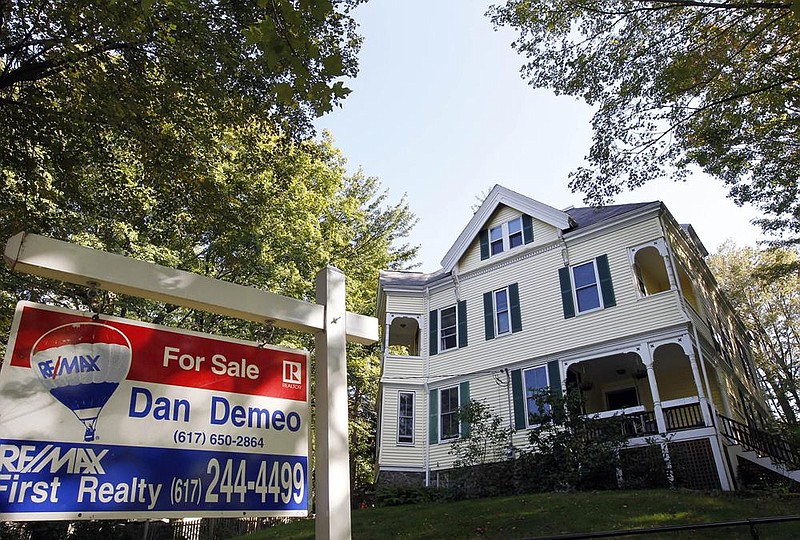The 30-year fixed mortgage rate, the most popular loan product, sank to its lowest level on record this week, marking the 15th historic low it has hit this year.
According to the latest data released Thursday by Freddie Mac, the 30-year fixed-rate average fell to 2.67% with an average 0.7 point. (Points are fees paid to a lender equal to 1% of the loan amount and are in addition to the interest rate.) It was 2.71% a week ago and 3.73% a year ago.
The 30-year fixed rate has never been this low since Freddie Mac began tracking mortgage rates in 1971. It surpassed the previous low of 2.71%, set earlier in the month. For some context on how remarkably low rates are, since November 2018, when it was 4.94%, the 30-year fixed rate has fallen more than 2.25 percentage points. At the start of 2000, the 30-year average was 8.15%.
The U.S. Commerce Department reported Thursday that U.S. home construction rose more than forecast to a nine-month high in November, highlighting the strength of a residential housing market that's been supported by strong demand amid the record-low mortgage rates.
[CORONAVIRUS: Click here for our complete coverage » arkansasonline.com/coronavirus]
Residential starts rose 1.2% to a 1.547 million on an annualized rate from 1.528 million in October, the report said.
Single-family starts rose for a seventh month to a 1.186 million annualized rate that was the highest since 2007, while starts for projects with five or more units, a category that tends to be volatile and includes apartments and condos, increased to 352,000.
Freddie Mac, the federally chartered mortgage investor, aggregates mortgage rates from about 80 lenders across the country to come up with weekly national average rates. It uses rates for high-quality borrowers with strong credit scores and large down payments. These rates are not available to every borrower.
Because the survey is based on home-purchase mortgages, rates for refinances may be higher. This is especially true since the price adjustment for refinance transactions took effect this month. The adjustment is 0.5% of the loan amount (e.g., it is $1,500 on a $300,000 loan) and applies to all Fannie Mae and Freddie Mac refinances.
The 15-year fixed-rate average dropped to 2.21% with an average 0.6 point. It was 2.26% a week ago and 3.19% a year ago. The five-year adjustable-rate average remained the same at 2.79% with an average 0.3 point. It was 3.36% a year ago.
"Mortgage rate dynamics over the past several months have been less dependent on economic data and more on policy-related matters -- both fiscal and monetary -- as well as epidemiological developments," said Matthew Speakman, a Zillow economist. "A new spending package may place some upward pressure on mortgage rates, particularly if the package contains more than has been reportedly debated. Investors have expected the spending package for a while now, meaning it's likely that most of their reaction has already been priced in."
The Federal Reserve met this week for the final time this year. As expected, the central bank did not raise the federal funds rate.
"The Federal Reserve reaffirmed [its] commitment to keep short-term rates at zero for the foreseeable future, noting the slowing pace of economic growth due to the intensification of the pandemic," said Mike Fratantoni, chief economist at the Mortgage Bankers Association. "We fully expect that they will maintain rates at the zero lower bound for years."
But most observers were more interested in learning what the Fed intended to do, if anything, about its bond-buying program. For the past several months, the Federal Reserve has been buying mortgage-backed securities, which are bundles of mortgages sold on a secondary market. When a borrower takes out a loan such as a 30-year fixed-rate mortgage, a lender often bundles that loan with others into a mortgage-backed security and then sells it to investors. The Fed's purchase of the securities has helped drive down mortgage rates.
There was some concern the central bank might curb its bond-buying program. But in a post-meeting statement, it said "until substantial further progress has been made toward the committee's maximum employment and price stability goals," the Fed would continue to buy at least $120 million of bonds each month.
"While the Fed has been clear regarding their plans for the federal funds target, they had been less so with respect to asset purchases," Fratantoni said.
While the Fed's purchases will continue to put downward pressure on mortgage rates, other factors could cause rates to rise or fall, such as a Brexit deal or a stimulus package from Congress. But most observers expect rates to remain low for the foreseeable future.
Information for this article was contributed by Kathy Orton of The Washington Post and by Olivia Rockeman of Bloomberg News.
